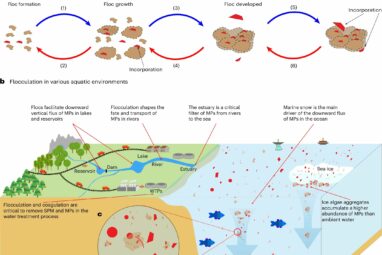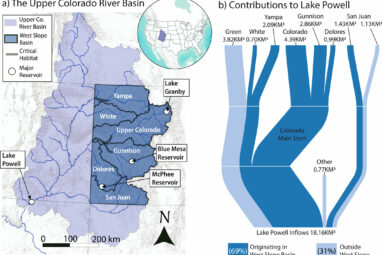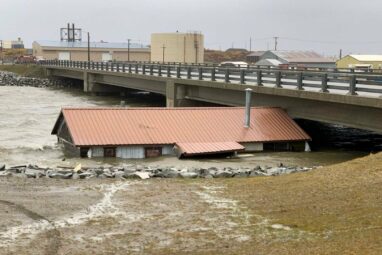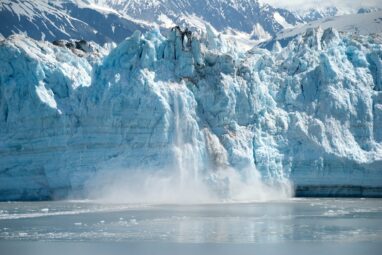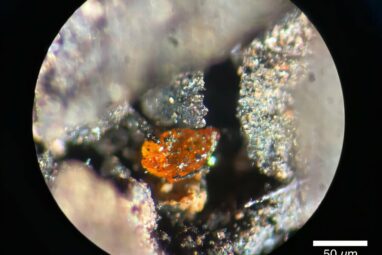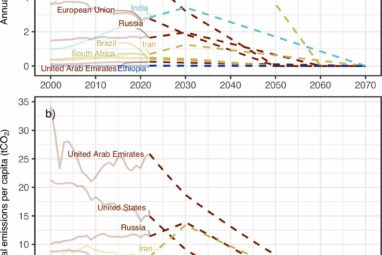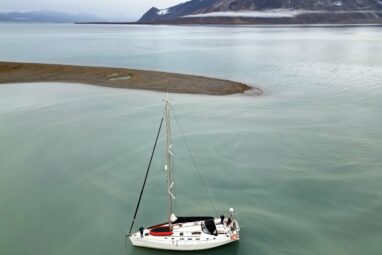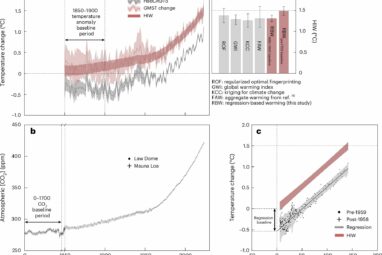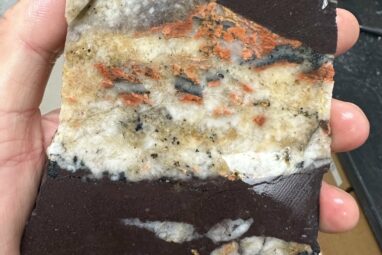Research sheds new light on the spread of microplastics, revealing a surprising “hitchhiking” mechanism that could impact ecosystems and human...
Climate-conscious investors should consider supporting companies with a wide range of climate policies, rather than companies that cherry-pick specific individual...
Extreme weather spurred by climate change, including droughts and heavy rains, may increase the risk of nitrates from fertilizers ending...
Water from Colorado’s West Slope basins plays a vital role in supporting the economy and natural environment across seven western...
While reliably snow-blanketed holidays might seem a thing of the past in Maryland and other parts of the East Coast—including...
Glaciers that are within three miles of a volcano move nearly 50% quicker than average, a new study has found,...
The global economy is in transition, with energy systems moving from a central reliance on fossil fuels. In addition, the...
Until recently, a gap existed in the world map of amber discoveries: the Antarctic continent. But that gap has finally...
A new study in Nature Communications finds that limiting global warming to 1.5 °C is still possible, but some countries require...
Willem van der Bilt from the Department of Earth Science at the University in Bergen and the Bjerknes Center has,...
A new study published today in Nature Geoscience by Dr. Andrew Jarvis at Lancaster University and Professor Piers Forster at...
Geologists have uncovered strong evidence from Colorado that massive glaciers covered Earth down to the equator hundreds of millions of...
